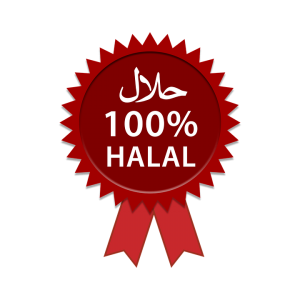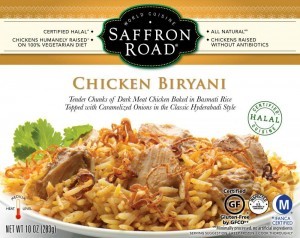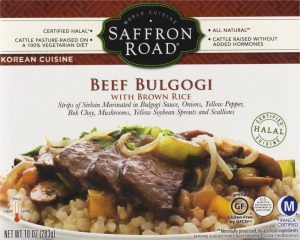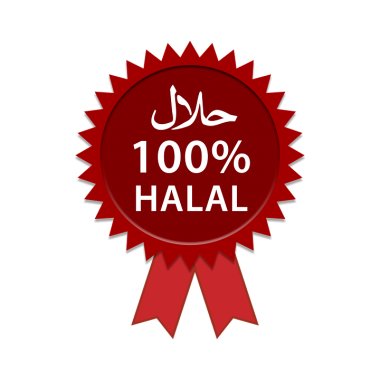Kosher Vs Halal: Opportunities For Sellers
Kosher Vs Halal: Are There Overlaps That Help Sellers?



If you’re planning on selling Kosher and Halal food products in your store, you’ve probably run into a dilemma.
- Around 40% of packaged food in the U.S. is Kosher, or prepared in ways that meet Jewish dietary requirements.
- Much less food is marked Halal, or prepared in ways that meet Islamic dietary requirements.
However, you might have heard that there are some overlaps between Kosher and Halal laws.
Therefore, your questions are:
- What food’s Kosher? What food’s Halal?
- Also, what are the overlaps between Kosher and Halal requirements?
- Can Muslims eat Kosher food? If so, what kinds?
- Even if they can by religious law, will Muslims eat Kosher food that isn’t certified Halal?
- Thus, can you expand Halal offerings by offering Kosher food?
Read on to learn the answers to these questions.
- First, you’ll find out what food is inherently Kosher.
- Then, you’ll learn what’s inherently Halal.
- Next, you’ll find out the similarities between the two sets of laws, and whether Muslims can and will eat certain Kosher foods.
- Finally, this article will list reliable brands to increase your Halal food offerings.
What’s Inherently Kosher?


Basics
- The word Kosher means “fit” or “proper.”
- For a food to be Kosher, third parties must verify that all of its ingredients and manufacturing processes are Kosher.
- Also, non-Kosher and Kosher foods can’t be made on the same production lines, or with the same equipment.
Meat/Poultry
- Only mammals that both “have cloven hooves” and “chew the cud” are Kosher (fit to eat).
- For example, meat from cows, sheep, and goats is Kosher.
- However, meat from pigs is off-limits, because pigs have cloven hooves but don’t chew cud.
- Not all birds are Kosher, but chickens, ducks, turkeys, and geese are.
- For meat or poultry to be Kosher, an animal must be slaughtered instantly, so the animal feels no pain.
- Also, an approved slaughterer must do the job, and a rabbi must oversee the process.
- In addition, the slaughterer must use one stroke of a knife and cut through the neck.
- Consuming animal blood’s strictly forbidden. So, producers must remove all blood from the meat.
- Producers must also get rid of off-limits skins, fats, and veins.
Milk
- For animal milk to be Kosher, it must come from Kosher mammals.
- People who keep Kosher can’t eat milk and meat products in the same meal.
Parve
- Parve (sometimes spelled Parev/Pareve) food is Kosher food without meat or dairy. Producers can’t produce Parve food on equipment used for meat or milk.
- Thus, people who keep Kosher can eat Parve food with their “meat meals” and “milk meals.”
Key Forbidden Foods
- Any pork or pork products.
- Insects and insect-based dyes.
What’s Inherently Halal?


Basics
- Halal means “lawful” or “permitted.” Thus, Halal foods are lawful to consume under Islamic law.
- The opposite of Halal is Haram (forbidden).
Meat
- Most animals are inherently Halal, as long as they are slaughtered properly.
- Slaughter must be painless and instant, so the animal does not feel pain. Thus, the slaughterer should kill the animal with one strike.
- The slaughterer also has to use a sharp knife, and remove all blood after slaughter. After all, blood’s strictly Haram.
- In addition, the slaughterer has to cut the throat, but not the spinal cord.
- An animal must be slaughtered “in the name of God (Allah).”
- These slaughtering requirements apply to both meat and poultry.
Key Haram Foods
These food ingredients make a food forbidden under Islamic law.
- Any pork or pork products.
- All alcohol (both for drinking and in preparation of food).
- Carnivorous animals/birds of prey.
- Blood/blood products.
Kosher Vs Halal Meat: Overlaps

Kosher and Halal laws both include these requirements:
- Pork’s off-limits under both sets of dietary laws. So is blood.
- Thus, producers must remove all blood from meat.
- An animal must not feel pain during slaughter, so slaughter must be instant.
- Kosher law requires only one strike to slaughter.
- Islamic law doesn’t require, but encourages, one strike.
- The slaughtering knife must cut the neck, but not the spinal cord.
- Muslims require that a Halal animal is slaughtered “in the name of God.”
- Also, Kosher slaughterers bless a slaughter immediately before performing it. They invoke the name of Adonai (the Lord). So, the slaughter is performed in God’s name.
Kosher requirements are stricter, though (mainly because Jewish laws require a trained Jewish animal slaughterer.)
- So, all Kosher meat is (theoretically) Halal, but not all Halal meat is Kosher.
- In other words, practicing Muslims can eat any Kosher meat… but will they?
Kosher Vs Halal: Will Muslims Eat Kosher?

There’s no simple answer to this question. The answer depends on the individual Muslim.
Some Muslims require a Muslim to slaughter their meat.
- They also require that a slaughterer uses the specific name of Allah when slaughtering “in the name of God.”
- So, they won’t accept a Kosher blessing as making an animal Halal.
- These Muslims will only eat meat products certified and marked as Halal.
Other Muslims don’t require a Muslim to slaughter their meat.
- But, they would rather trust a Halal certification to make sure their meat meets their religion’s requirements.
However, still other Muslims will eat Kosher meat.
- They accept a Jewish individual’s Kosher slaughter of an animal because the slaughterer uses God’s name and meets the other Halal standards.
As for non-meat prepared products?
- Again, most Muslims prefer products marked as Halal.
- But, non-meats aren’t labeled as commonly.
- So, Muslims must read labels carefully to avoid Haram food.
- For example, a food might be Kosher but not Halal thanks to alcohol, although this is rare.
- Still, they can usually buy Kosher with confidence.
Products to Increase Halal Meat Offerings


As a seller, the best way to increase Halal offerings is to sell certified Halal products (meat and non-meat).
Some reliable meat entree brands are:
- Saffron Road: Saffron Road offers a myriad of Asian frozen entrees. In fact, all of the brand’s entrees are Halal certified!
- Sukhi’s: Customers will enjoy Sukhi’s chicken coconut curry, korma, vindaloo and tikka masala, among other Halal products.
- Tandoor Chef: Biryani, tandoori and curry are some of the brand’s Halal chicken entree offerings.
Want to drop ship Halal and Kosher food from natural and organic producers? Learn more here.
[contact-form-7 id=”5741″ title=”Front Page Subscribe”]




